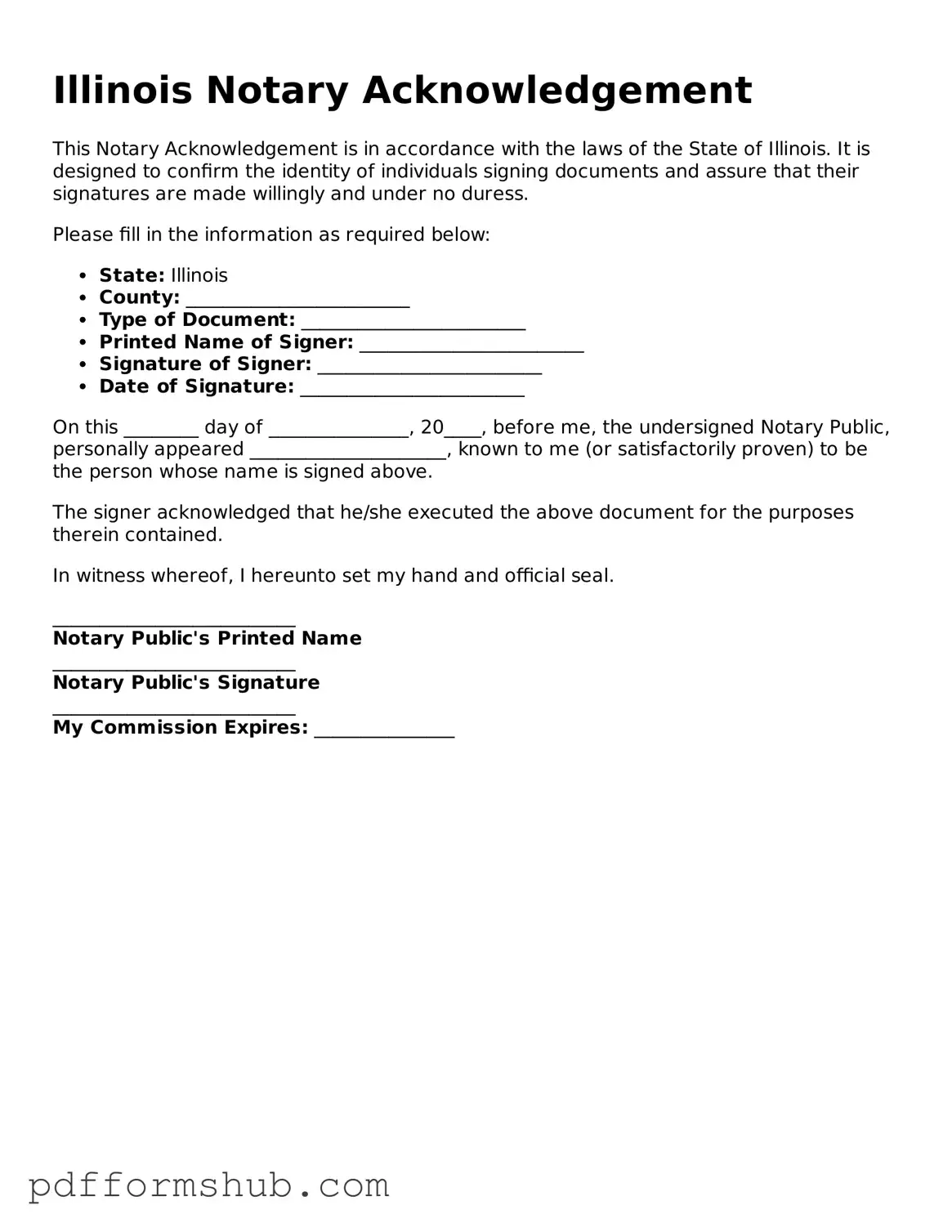Attorney-Verified Notary Acknowledgement Form for Illinois State
The Illinois Notary Acknowledgment form is a legal document used to confirm the identity of a signer and their willingness to sign a document. This form serves as an essential tool in ensuring that important documents are executed properly and can be relied upon in legal contexts. To get started on filling out the form, click the button below.
Customize Form

Attorney-Verified Notary Acknowledgement Form for Illinois State
Customize Form

Customize Form
or
Free PDF Form
Short deadline? Complete this form now
Complete Notary Acknowledgement online without printing hassles.